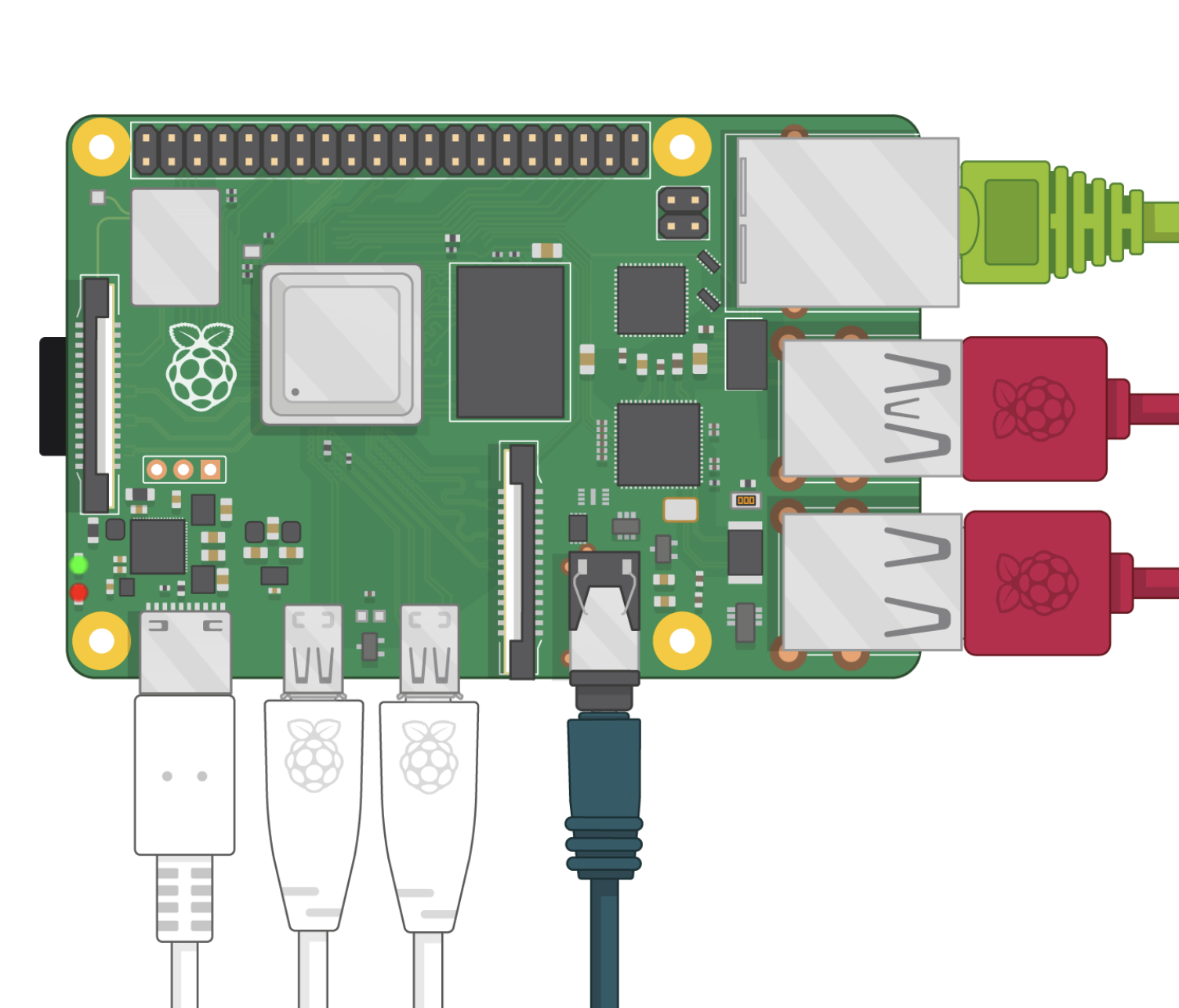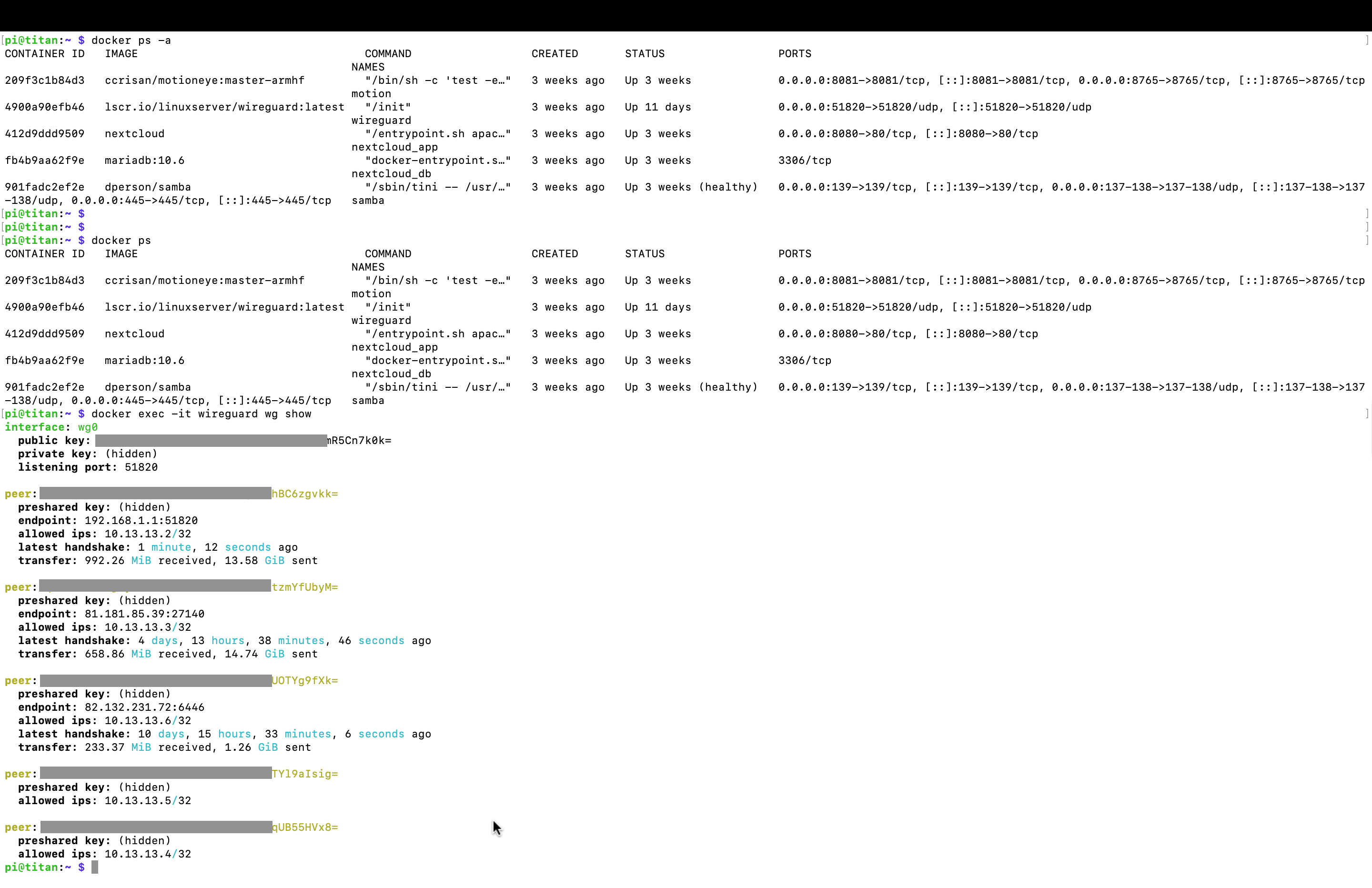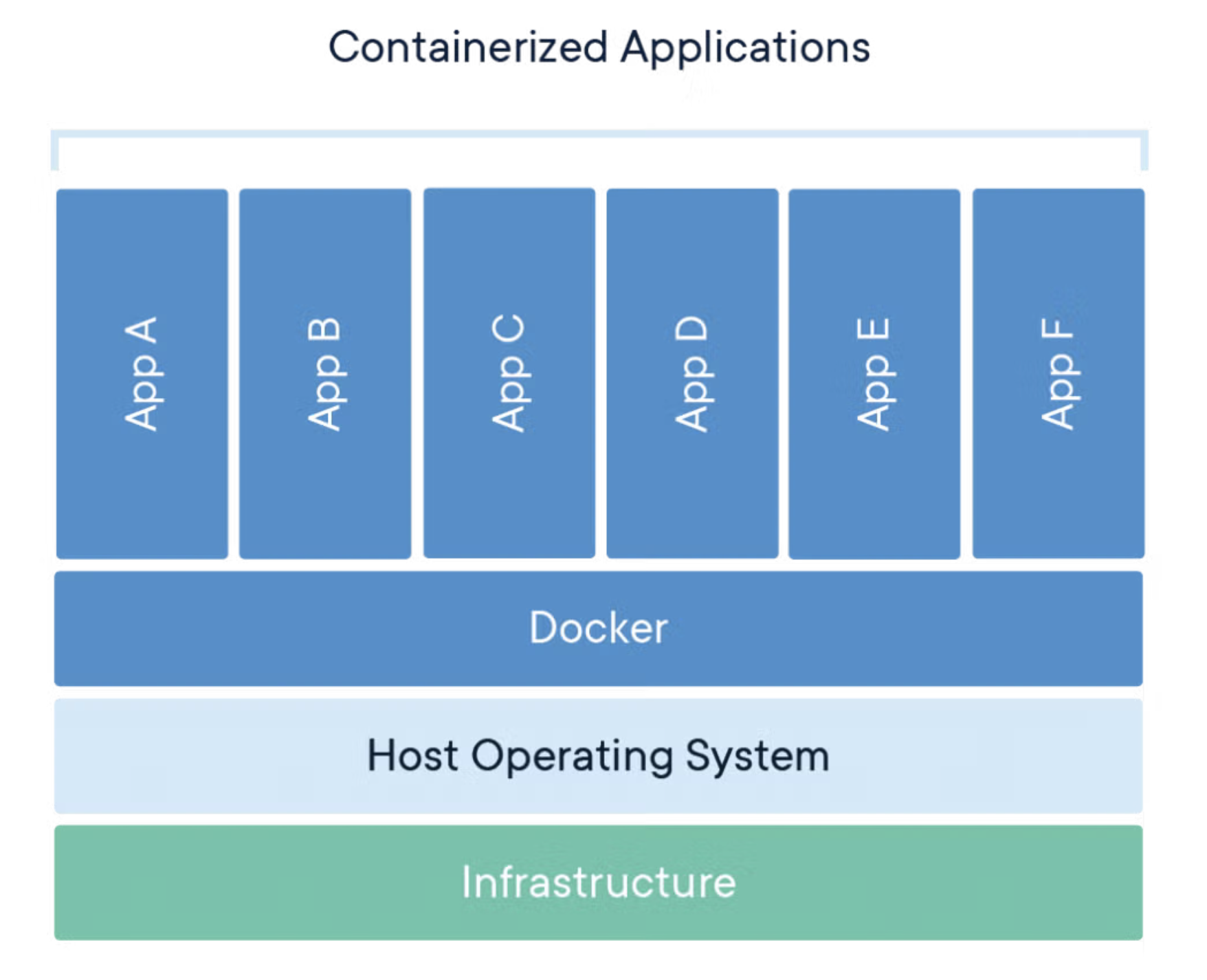Self-Hosted VPN with Docker on Raspberry Pi
Project Overview
- Device: Raspberry Pi 4
- OS: Raspberry Pi OS
- VPN Technology: WireGuard
- Containerization: Docker & Docker Compose
- Dynamic DNS: Configured for handling IP changes
📚 What I Learned
⚙️ Implementation Steps
- Installed and configured Docker on the Raspberry Pi
- Set up a WireGuard VPN container using a ready-made Docker image
- Generated server and peer configurations
- Set up Dynamic DNS to handle changing public IP addresses
- Configured port forwarding on the home router
- Deployed and tested VPN client peers on mobile and laptop
🧾 VPN Background
A Virtual Private Network (VPN) securely tunnels internet traffic from a client to a server, often used to protect data, bypass firewalls, or appear as if browsing from a different network. In this project, the VPN server was hosted at home on a Raspberry Pi, allowing remote devices to connect and use the home network as a gateway to the internet. This setup ensures privacy, security, and access to internal services from anywhere.
📘 Full Documentation
The technical documentation and full walkthrough are available in the embedded Jupyter Notebook below:
🔍 View Embedded Jupyter Notebook
🌐 Raspberry Pi Public IP Tracker
I configured my Raspberry Pi to monitor its public IP address and securely update a remote AWS server when it changes. The current IP is saved in a file that can be accessed via my personal domain. This allows for a consistent way to connect to the Pi even when behind a dynamic IP address. It's a simple but effective solution using Bash scripting, SCP, and cron automation—perfect for remote device access and dynamic DNS alternatives.
🔍 View Embedded Jupyter Notebook
Wrap Up
This project has been a significant milestone in my ongoing exploration of network infrastructure and cybersecurity. By deploying a VPN server on a Raspberry Pi using Docker, I gained hands-on experience with containerization, port forwarding, secure tunneling, and system automation.
Beyond the technical setup, the project helped me better understand how abstract networking concepts apply in real-world scenarios. I also improved my problem-solving skills and deepened my confidence in working with Linux systems and cloud-hosted services.
I see this as the foundation for more advanced projects involving secure self-hosting, remote access, and privacy-oriented services. It’s an exciting step forward as I continue to build my skills and prepare for a future in backend development or network engineering.







